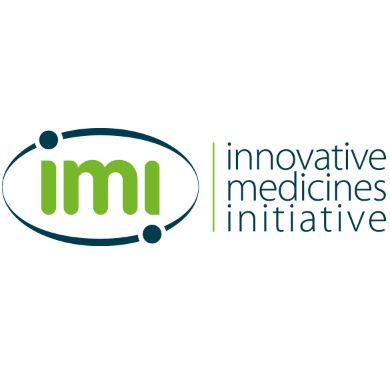
Establishing international standards in the analysis of patient reported outcomes and health-related quality of life data in cancer clinical trials
Date de clôture : 26 mars 2020
APPEL À PROJET CLÔTURÉ
APPEL À PROJET CLÔTURÉ
Entrepreneuriat et PME
Soins de santé
Équipement médical
E-health
Applications informatiques
Société numérique
Santé mentale
Essais cliniques
Numerous efforts have been undertaken to standardise the way HRQOL and PRO data are conducted and reported in cancer clinical trials. These include recommendations to standardise reporting and drafting of clinical trials, translations in clinical trials, and how to develop and standardise measures for use in clinical trials. However, there are no agreed standards on how to analyse HRQOL and PRO data in clinical trials and subsequently, interpret the findings. The various ways data are analysed and interpreted make it difficult to compare results across trials, and hinder the application of research findings to inform physicians, patients, caregivers, policy makers, reimbursement authorities and other stakeholders. Lack of standardisation can lead to variation in the analysis of results and could result in two near-identical trials being analysed in different ways, leading to potential differences in data interpretation.
A number of systematic reviews from randomised controlled trials (RCTs) have highlighted the current lack of standardisation in this field and reported the following key findings:
- a lack of clear HRQOL and PRO research objectives;
- a lack of standardisation of basic statistical terms such as compliance and completion rates;
- the use of suboptimal statistical practices and a variety of statistical methods not well justified with respect to analysing HRQOL and PRO data;
- the use of a variety of approaches to handling missing data.
There is an urgent need to develop clear standards and guidelines, endorsed by a broad range of stakeholders, to improve how HRQOL and PRO data are analysed in cancer clinical trials. This would also help promote HRQOL and PROs as potential primary or co-primary endpoints (when relevant) in cancer clinical trials. Such standards will support the full use and understanding of HRQOL and PROs in drug development and drug and device approval by regulators and health technology assessment (HTA) bodies, but importantly it will also support better communication of PRO results to clinicians and patients with the potential to inform and improve shared decision-making.
Scope:
The scope of this Call topic is to develop recommendations for the different analyses and interpretations of HRQOL and PRO endpoints in cancer clinical trials that will be tailored towards addressing specific research objectives within each clinical trial. This Call topic aims for a global scope and is of strong interest to individuals from various regulatory and HTA bodies, key cancer organisations, the pharmaceutical industry, specialised vendor organisations, academic societies and international patient organisations. The buy-in of these various key stakeholders is crucial, as this will help identify a set of similar expectations, facilitate the implementation of these recommendations, and harmonise the analysis and interpretation of HRQOL and PRO data on a global scale.
The main objectives are to:
- achieve international consensus, across stakeholders, on the optimal use of HRQOL and PRO data in cancer clinical trials;
- improve the quality of statistical analysis of HRQOL and PRO data in cancer clinical trials;
- improve the standards of reporting of HRQOL and PRO data, and as such the interpretability of the data. It is hoped that this will result in more reliable interpretation, and ultimately faster dissemination, of HRQOL and PRO findings, as well as cross-referencing within and between different cancer settings, whenever this is deemed feasible.
Expected Impact:
A consensus and clear set of agreed methodological recommendations for the statistical analysis of HRQOL and PRO data in cancer studies will improve their interpretability. This is an important prerequisite for better adoption and increased use of these outcomes in various decision-making contexts (regulatory approval, HTA/reimbursement decisions, shared decision making between physicians and patients). Importantly, the expected outcomes of this initiative will be of mutual benefit to all stakeholders involved, including the most important beneficiary of healthcare, the patient. Reaching a broad international consensus is a prerequisite for a broader adoption of HRQOL and PRO data and is likely to result in:
- more reliable findings and faster dissemination of HRQOL and PRO data in cancer studies;
- advances in statistical science and improved statistical practice in cancer studies;
- improved interpretability of the data because of greater familiarity with standardised reporting;
- broader use and adoption of PRO data to inform benefit-risk evaluation in regulatory appraisals, added benefit evaluation in HTAs and reimbursement decision processes as well as shared treatment decision making contexts;
- better and improved shared decision making between patients and their treating physicians which may lead to improved patient satisfaction, an increased likelihood of adherence to treatment, higher likelihood of treatment success and a reduction in health‐care cost;
- better and more efficient use of increasingly finite research and healthcare funding;
- improved and more efficient clinical trial designs that also investigate the cancer patient perspective on treatment outcomes.
Applicants should indicate how their proposal will impact the competitiveness and industrial leadership of Europe by, for example engaging suitable small and medium-sized enterprises (SMEs).
Deadline: 26 September 2019 17:00:00 Brussels time
2nd stage Deadline: 26 March 2020 17:00:00 Brussels time
Lien officiel : Disponible pour les utilisateurs enregistrés




S'il vous plaît Se connecter pour voir cette section